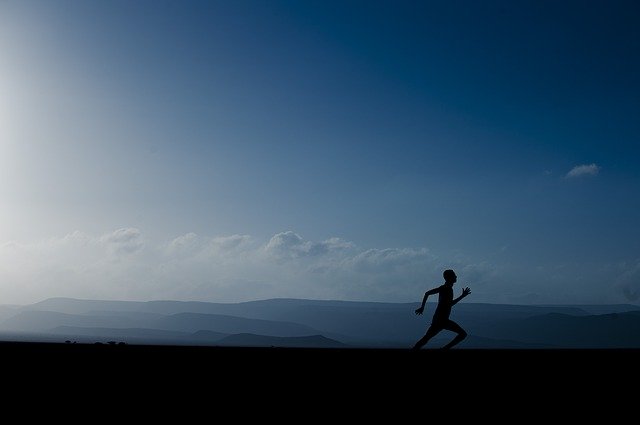Islamic View on Health and Excercise
Good physical and mental health is highly encouraged in Islam and the Quran. A hadith states: ‘A strong believer is better than a weak believer.’ Having the right health and exercise mindset will help you achieve many goals at the same time.
Also, we won’t be of those people who waste two important blessings: health and free time.

Tips on staying healthy
‘…Your body has a right over you…’ Hadith Sahih Bukhari
When the government asked its citizens to stay indoors and only go out for necessities, most people decided to stockpile weeks and weeks worth of food, which as it turns out wasn’t necessary because grocery stores and supermarkets were still open.
But now, having been indoors with all this extra food that is fast approaching its sell by date, or just gone past it, you’ve had to eat all of it so it doesn’t get thrown out and go to waste. This has inevitably been evident on your waistlines and general fitness.
So we’re going to talk about how to stay fit during the quarantine period so your muscles don’t waste away when finally we’re allowed out to freedom again, insha’Allah.
Islamic Fitness & Exercise mindset
Being stuck inside means that there is a danger of slipping back to an unhealthy routine where you think what’s the point of keeping yourself fit and healthy if the ‘world’s gonna end’, and becoming complacent in how well you take care of your body and your mind. Looking after your mental health is just as important here.
So the mindset you need to establish is that I’m going to come out of this lockdown better physically and mentally, in better shape than I have ever been, then it can happen. We don’t know how long this quarantine will last so make the most of it to connect with our Creator by being a strong believer.
Keep warm and healthy with these efficient heaters

Fitness and strength for Islam
Although most commentators refer this strength as one of faith, some also see this as strength referring to physical strength, as such a person will be able to perform longer rakah in Salah, will be able to add additional voluntary fasts, perform Hajj and participate in Jihad.
With most people stuck inside, understanding the different ways to keep active is vital for our physical and mental wellbeing. Unfortunately, going for some of the Sunnah methods of physical activity like horse riding, archery or swimming may not be possible at this time but there are other ways.
Exercise & Physical Activity Benefits
Going for the daily walk and getting some fresh air has become the highlight now for many people. For all those feeling trapped being stuck inside, it’s the best way to break up the daily routine of moving from the sofa to the kitchen to the dining area back to the sofa. Going for a brisk walk is the best way.
Being physically active helps lower blood pressure and cholesterol and can reduce the risk of heart disease, stroke and diabetes. It also helps maintain muscle mass and bone density. Physical activity also helps your immune system working effectively as it flushes bacteria from the lungs and airways, increases white blood cells and raises body temperature, which can all help the body fight infection.
Keeping active and doing regular exercise also helps with easing some of the psychological issues associated with being stuck inside for a long time, as it helps lower stress hormones by promoting the release of endorphins which make you feel better.
If you are allowed to go outside then regular walking, running or cycling is a great way to stay active, just make sure you keep to the social distancing rules.
How to do home workouts without equipment
But even at home, there are ways you can continue your workout routine and some of these require very little or no equipment. Remember, any activity that raises the heart rate is good for cardio health. Try walking up or down the stairs a few times, and try to walk around the house when you’re on the phone.
Use the Youtube videos and the tons of apps we have got access to that promote physical activity. Luckily, many popular trainers post most of their fitness videos online for free, so long as you have an internet connection, you have a selection of different workouts available.
Resistance exercises can help strengthen your muscles and improve your mobility. For the generally more active, a good advice is to do a mix of body-weight exercises and high-intensity interval training (HIIT). Body-weight workouts are relatively short and don’t take up much space and importantly don’t require much equipment. Interval training can be used to maintain fitness. Exercises like jump squats, burpees, skipping or fast push-ups all get you sweating very quickly.
For the less active, things like squats (or sit to stands from a chair), push-ups (even against a wall), and lunges or single leg step-ups on stairs are all great for people who are new to these kinds of exercises.
You can also make use of the stockpiled items that are getting in the way. These include: rice bags, bottled water or flour to help you keep fit, by using them as dumbbells. You can make them heavier by putting more than one in a bag. If you want something heavier, consider lifting your children! Safely.

How much exercise is the right amount?
For most people:
- Perform mild to moderate exercise (20-45 minutes), up to three times a week
- Strive to maintain (not gain) strength or fitness during the quarantine period
- Do not exercise if you have any flu-like symptoms
- Do not exercise more than five days a week if you hadn’t done this before
- Wash and disinfect any equipment after use
- Eat and sleep well to boost your immune system
Other health tips
Try to get more sunlight, as its the main source of natural vitamin D, and helps to improve the production of vitamin D in the human body. Try to get around 10-15 minutes of sun.
Try to do some neural exercises like vocalisation, by reciting the Quran which also help with breathing rhythms.
‘…Unquestionably, by the remembrance of Allah hearts are assured.‘
Quran [13:28]



